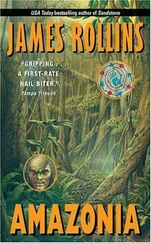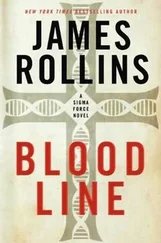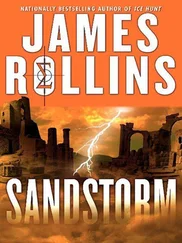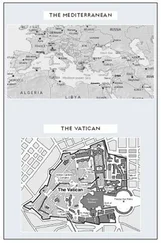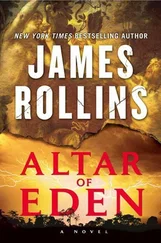He shuddered again and crossed to the wall safe. He thumbed the combination and pulled open the door. Amid the ship’s papers and a few thousand dollars in American currency lay a crumpled glove. Jack pulled it out. The fingers and edges were scorched, but he had not been able to part with it. No matter how much he wanted to forget the past. He couldn’t.
“I’m sorry, Jennifer,” he whispered, pressing it to his lips. When the rescue crew had found Jack’s unconscious body amid the billowing parachutes, they had found this glove still clutched in his hand. He had been the only survivor. Even now he could still feel Jennifer’s frightened and panicked grip on his hand.
Behind him a rapid knocking shook his cabin door.
Jack returned the glove slowly to the safe, his eyes closed against the tears. “What?” he growled irritably.
“Just thought you should know, Jack. We’re about to reach the rendezvous point.”
He recognized the marine biologist’s voice and glanced to his clock. Three hours had passed. “All right, Robert. I’ll be up in a moment.”
Crossing to his room’s head, Jack splashed cold water on his face. As he straightened, he stared up at his reflection. Water dripped off his hard features and strong chin. His black hair, though still dark, was now dusted with gray at the temples. He wore it long, to his shoulders. No longer the military crew cut. He shoved the damp hair behind his ears and toweled off his sun-bronzed skin. He turned away, unable to face his own reflection.
Tuned to his ship, Jack recognized the slight change in the engines’ constant rumble. They were slowing down. Hurrying, he slipped into a loose shirt, left it unbuttoned, and crossed barefoot to the door. As he exited he found Robert Bonaczek still waiting for him.
The marine biologist seemed nervous, shifting his feet, unable to meet Jack’s eyes. Robert Bonaczek was only twenty years old, the youngest on the crew, but also the most serious and dour. He seldom smiled. He had graduated with a master’s degree in marine sciences at the tender age of eighteen and had been on board the last two years, working toward his doctorate. Lisa called him “an old soul trapped in a young body.” This assessment was compounded by the fact that the man’s thin blond hair was already balding.
“What is it, Robert?”
The biologist shook his head. “You need to see it for yourself.” The young man turned and headed for the door to the open deck.
Jack followed, shoving through the door after the biologist.
The sun, now lower in the sky, blinded Jack. He blinked against the glare and raised a hand to shield his eyes. The other members of the team were all on deck, except for the geologist, Charlie Mollier. Jack spotted his large frame behind the windows of the pilothouse. Charlie gave him a short wave.
Jack joined the others at the rail; Robert, on one side, Lisa on his other. “How’d you sleep?” the doctor asked.
“You slipped me something, didn’t you?”
She shrugged. “You needed sleep.”
He thought to reprimand her. What right did she have to treat him like a child? He was the goddamn captain of this boat. But instead his eyes were drawn forward.
Ahead, the normally empty stretch of ocean was crowded with ships: fishing trawlers, cargo ships, military cutters. Flags from various countries flapped above the ships. Overhead, a pair of Jayhawk helicopters buzzed by. Jack followed their path, guessing they had been sent from the Air Force base on Wake Island. Near the horizon, a wide-bodied C-130 swept back and forth over the scene, a search pattern. The plane had probably been scanning the area all night with its sonar. The U.S. National Transportation Safety Board had clearly mobilized its “go-team” on this crash.
George Klein stepped up behind Jack, reading his mind. “The NTSB has been busy. An impressive mobilization, considering how far out we are.”
The professor puffed on a pipe as he stared out at the turmoil. Except for the thick pipe, George looked nothing like a sixty-something Harvard professor. The older man was muscular, wearing a pair of trunks and nothing else. His wispy white hair fluttered in the thin breeze. Jack had always thought George bore a striking resemblance to Jacques Cousteau.
“What’s that smell?” Kendall McMillan asked, wrinkling his nose.
Brought to his attention, Jack caught the acrid taint in the ocean breeze. “Fuel spill.” He finally noticed the slight stain on the ocean’s surface off the port bow. The oil slick spread in a black bloom. There was no question that some sort of crash had occurred here.
Within the oil slick, Jack spotted a few bobbing red buoys. Data buoys, he realized, dropped to give the searchers some indication where wreckage and bodies may have drifted. “Someone should have hauled my ass up here earlier,” he said.
George glanced at Lisa, who suddenly bore a more intense interest in the ocean. “And bear Lisa’s wrath? I’d rather face a Great White with chum hanging around my neck. Besides, Charlie contacted the head of operations here an hour ago.” George glanced at Jack with his brows raised. “The Coast Guard vice admiral himself…flown in from San Diego last night. Not exactly a friendly fellow, from Charlie’s description.”
“How do they want us to help?”
“We’re on standby until they localize the pinging of Air Force One’s data recorders and initiate an action plan. It seems NTSB is really only interested in our Nautilus . We’re to sit out here until our sub is called into play.”
“And what about Admiral Houston?” Jack asked. His old Navy commander had been the one to order them to service. “Isn’t he here?”
“Due to arrive tomorrow.”
“What’s taking him so long?”
“I guess it takes longer to grease the huge wheels of the U.S. military machine. He’s due at daybreak in the USS Gibraltar .” George waved his pipe forward. “All this malarkey is just preparation. Getting all the ducks in a row before the true deep-water search begins.”
“The Gibraltar ,” Jack mumbled.
“You did a tour on that boat, didn’t you?”
Jack nodded. He had served aboard the ship for seven years. The Gibraltar was a Wasp-class Landing Helicopter Dockship, one of the largest ships in the Navy, only dwarfed by the supercarriers themselves. The LHD was a part of the infamous ’Gator Navy, an amphibious task force combining the combat power of the Marines with the speed and mobility of the Navy.
Robert called out from nearby, pointing. “Look.”
Off to the port, a bit of debris bobbed among the buoys. It hadn’t been there a moment ago. It must have just surfaced. Jack squinted. “Get me a pair of binoculars.”
Robert hurried away and returned with a set of Minolta glasses. Jack donned them. It took him a moment to find and focus on the piece of equipment. It was the back of an airline seat, the presidential seal bright blue against the red seat back.
A sudden swell rolled the seat over. A flash of pale flesh. An arm hanging limply. Then the sight vanished.
“Is it wreckage?” Robert asked.
Jack could not answer. He flashed to his own tumble through the air twelve years ago. The crash of the shuttle Atlantis . The sight struck too close to home.
“Jack, are you all right?” Lisa touched his shoulder.
He lowered his binoculars, pale, trembling. “We should never have come here. No good can come of it.”
July 25, 9:34 P.M.
Oval Office, White House, Washington, D.C.
David Spangler waited outside the Oval Office. All around him, even at this late hour, the West Wing of the White House bustled with aides, underlings, and messengers. This current turmoil was not localized just to Pennsylvania Avenue. The entire Beltway remained in high gear: countless press conferences were convened, repeated emergency meetings atop Capitol Hill took place, and an endless amount of petty backdoor bickering occurred throughout the halls.
Читать дальше



